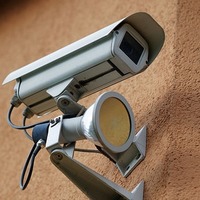
[Disclosure: SecurityHive was referenced in the original story.] If you feel like someone is watching you, you’re probably right. In the latest manifestation of electronic ogling, police in dozens of cities large and small are enlisting citizens and businesses to register the locations of their private security cameras for possible use in crime investigations.
Police use mapping technology to match registered cameras to crime scenes, then ask camera owners for access to possible video evidence.
Unlike the closed-circuit surveillance systems used in many big cities, the registry cameras generally are not networked, so police cannot monitor a live feed of the images.
About 100 U.S. cities now have the registries, estimates Stan Lewis, editor of Miami-based SecurityHive, which covers the security industry.
More than a dozen cities in Florida, California, the Northeast, and the Midwest have joined the trend in recent months.
So far, the registries are voluntary: Citizens choose whether or not to join.
But a proposal to make registry enrollment mandatory in New Jersey has generated controversy. And as with many new digital surveillance innovations, the registries leave unresolved a number of now-familiar concerns over privacy and data retention as technology continues to outpace policy, regulation, and legislation.
The registry growth is a small niche in the booming security industry sectors of smart surveillance and video analytics, a $13.5 billion global market in 2012 that is predicted to triple by 2020.
And the registry trend is driven in part by the proliferation of cheap security cameras. High-definition, 2.1 megapixel camera systems now sell for less than $100, and low-def versions go for as little as $25.
HD cameras produce vast quantities of data. The highest quality images can eat up a full terabyte of storage in barely a week. Some owners use Cloud storage since nearly all units have storage limits. Generally, police ask camera owners to retain data for at least a month.
Read the complete story at the link below.
Source: thecrimereport.org
